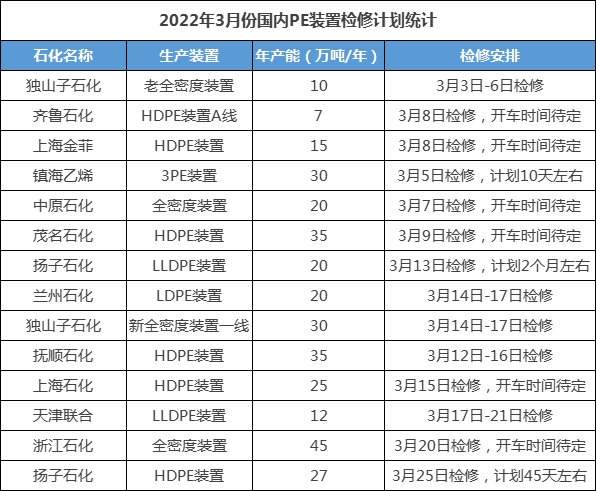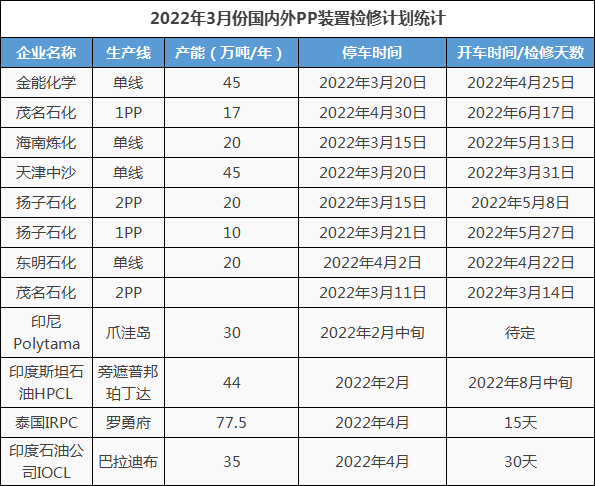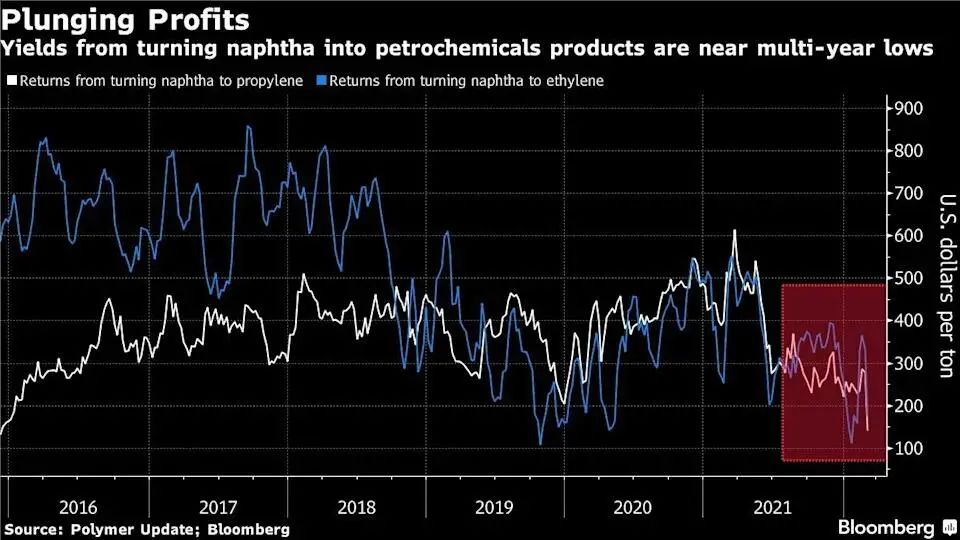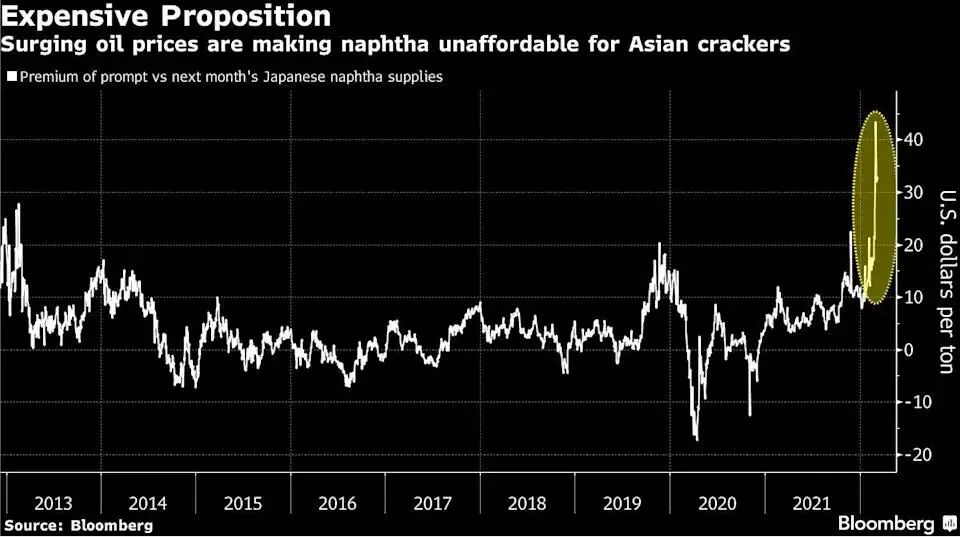Supply and cost pressure, domestic and foreign enterprises rise
recently, international Titanium dioxide giant tenofa cloth announcement, said that due to force majeure factors, titanium dioxide temporarily stopped production, is expected to EoL time in about two weeks. In addition, more than a dozen chemical enterprises also said recently that they were in short supply due to force majeure or accidents, and some even said they would be interrupted for several weeks.
Shengxi Austrian Swiss company suspend the quotation of some PC, PS, ABS and SAN products for one week.
Lotte Yubu A fire broke out in the butadiene Rubber Factory (LUSR) of synthetic rubber company;
one of the largest refineries in North America marathon Oil Company Factory recently, a violent explosion occurred, causing five employees to be injured.
India the factory of the largest PTA producer (MCCI, an Indonesian subsidiary of Mitsubishi Chemical) exploded, causing some chemicals to spill out and 6 people were injured in the accident;
south Korea YNCC stop due to lightning strike on Line 1 of cracking unit;
vietnam NSRP due to the fire caused by steam turbogenerator failure, the PP plant with a capacity of 370,000 tons/year was shut down;
ICCChemical force majeure will affect all Doverphos.®Series of products, including all liquid organic phosphite, triphenyl phosphite (TPP), liquid green phosphite (LGP), trinonylphenyl phosphite (TNPP) and all solid phosphite, including S-9228;
kostron it was announced that the supply of HDI and IPDI suffered from force majeure due to unpredictable emergencies in the hydrochloric acid logistics of Leverkusen;
total energy it was announced that the polypropylene copolymer (PP-C) located at the factory in gonfleville, Paris, France suffered force majeure and the supply of products was interrupted for several weeks.
In addition, according to statistics, in March 2022, P P and PE petroleum refinery maintenance devices continued to increase. PP at home and abroad involved in maintenance capacity of nearly 4 million tons, and PE at home involved in maintenance annual capacity of 4.18 million tons.


Force majeure at the supply side, superimposed crude oil and natural gas continue to soar. Recently, panzhihua TILEN FOOD chemical industry according to the price increase letter, from now on, the domestic price will be raised by 600 yuan/ton, and the foreign trade price will be raised by 150 dollars/ton, this is also the first titanium dioxide enterprise in China to follow the rise.
Since the beginning of the year, many domestic and foreign chemical enterprises, such as BASF, DuPont and DSM, have continuously sent letters to increase, and the price increase has been arranged until April.
Yubu Maruyama polyethylene Co., Ltd: since March 11, the price of UEB powder polyethylene products has been raised, up to 40 yen/kg (about 2193 yuan/ton). LDPE, EVA, Metallocene LLDPE, EEA and other products have raised their prices since March 11, up to 30 yen/kg (about 1644 yuan/ton).
Japanese Showa electrician: from March 11, the prices of Unsaturated Polyester Resin and vinyl ester resin were raised, with a maximum increase of 40 yen/kg (about 2200 yuan/ton).
SKSHU: from 22:00 on March 11, the price of products during the decoration period will be increased by 4%-12%. The price adjustment products cover latex paint, water-based paint for wood ware, Art paint and other categories. The details are subject to the delivery system. On the same day, SKSHU also issued a notice on price adjustment of engineering products, aiming at the current rising prices and supply problems of raw materials and packaging materials, the price of engineering products has been raised since March 11. The interior and exterior wall coating is up 5%-15%, the base auxiliary materials is up 4%-10%, the waterproof is up 10%-15%, the floor coating is up 5%-15%, and the insulation board/camera bracket grip is up 5%-15%.
Polyethylene Co., Ltd: since March 15, all PE products have been raised by 23 yen/kg (about 1263 yuan/ton).
BASF: since March 15, nursing chemicals in North America have risen by 15%.
Denmark flugger group: since March 16, the prices of all products have been raised to varying degrees.
Toyo styrene Co., Ltd: from April 1st, the price of PS resin and flame retardant enhanced PS products will be raised, with a maximum increase of 15 yen/kg (about 821 yuan/ton).
BASF: from April 1, the price of polyoxymethylene resin (POM) and composite resin in the Asia-Pacific region has been increased by 350 USD/ton (about 2500 RMB including tax/ton).
DIC Corporation of Japan: from April 1, polystyrene (PS) products and styrene series products will be adjusted. The up-regulated products include styrene, GPPS, HIPS and elastic ethylene, rising above 17 yen/KG.
Japan PS Co., Ltd: from April 1st, the price of all polystyrene (PS) will be increased, which is more than 12 yen/KG.
Toyo PS Co., Ltd: the price of polystyrene (PS) will increase from April 1. The up-regulation products include GPPS, HIPS, special PS and flame retardant PS, all rising by more than 15 yen/KG.
Dow: the price of polyolefin elastomer and other products in the Asia-Pacific region has been raised by US $300/ton, about RMB 1896/ton.
SKGC company: for PRIMACOR™The series of EAA products have been raised comprehensively, with a direct increase of 250 USD/ton (about 1577 yuan/ton).
Tasman Engineering Plastics: greater China further raised Xytron™The price of (PPS) is 7400 yuan/ton (excluding tax).
Mitsubishi chemistry: raise the transaction price of polyvinyl alcohol (PVA) products in Japan and exports. Specifically, the prices of PVA products of Gosenol, Gosenex and NichigoGPolymer series and some products increased by 700 USD/ton, or about 4425 RMB/ton.
Sheng Xi Ao: european subsidiaries will increase the prices of all polystyrene (PS), Polycarbonate (PC), ABS and SAN grades, up to 1116 yuan/ton. European subsidiaries raised the price of MMA monomer up to 550 euros/ton (about 3835 yuan/ton).
Comu: from April 1, all specifications Ti-Pure™Titanium dioxide will increase by 200 USD/ton.
Tenor: from April 1st, products sold in Europe will be adjusted to 150 euros/ton, while prices in the Middle East, Africa and Eastern Europe will be adjusted to 175 dollars/ton or 155 euros/ton.
Connors: from April 1, the price of products per ton will rise by at least 170 euros or 200 dollars (about 1263 yuan/ton).
Pan Neng extension: from April 1st, all products sold in Europe, the Middle East and Africa will be used for coatings, plastics, the sales price of titanium dioxide products used in ink and paper increases at least 350 euros or 400 dollars per ton (about 2526 yuan/ton).
On the one hand, the prices of raw materials in the upstream are constantly rising, and they are facing a situation of short supply. On the other hand, the operating rates of construction sites and many industries are generally low, and the demand for real estate, household appliances, automobiles, furniture, aluminum profiles and other industries is weak, the order situation of chemical products is not optimistic. Superimposed on the influence of overseas input inflation, China may have a stagflation trend of upstream surge and downstream temperature loss.
 Mainly
Mainly

 Polyurethane
Polyurethane

 Fine Chemical
Fine Chemical


















.png)



